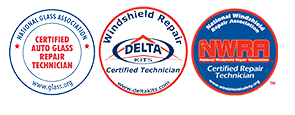This is directed towards anyone who can supply some answers as well as some opinions, please.
1) Please explain the difference between the two standards and what they are (For those who don't know)
2) Should companies who develop resins be certified?
3) Does it matter to technicians
I have know idea what the British standards are, I figure Brent or Screenman will be able to help.
Cheers,
Scott
ANSI & BSI certified resins
- Brent Deines
- Moderator
- Posts: 2452
- Joined: September 24th, 2003, 7:54 am
- Enter the middle number please (3): 5
- Location: Eugene, OR
- Contact:
Re: ANSI & BSI certified resins
Britain and Australia have the only standard that requires testing. (BS AU251:1994)
ANSI is the organization that legitimizes this type of testing. Recently the Repair Of Laminated Automotive Glass Standard (ROLAGS) was accepted by ANSI as the official standard for windshield practices, but there is no requirement for resin testing at this time.
I think it is good to have a standard and I'm proud to say Delta Kits has passed the BSI testing with flying colors, but as recent threads on this forum have proved, many technicians don't really care about the testing, or performance standards. What is most important to many is how well a resin performs for them. I can't say that I feel much differently about that, but I learned the hard way that just because a resin flows well and looks good at the completion of a repair, it is not wise to ignore long term independent test results. A high quality resin should perform well on paper and in real world use.
There is some real crap on the market today, some of which not only lack the adhesive strength, tensile strength, clarity, and elasticity that are critical for long term performance, but are also quite dangerous to work with.
I hope someday soon we will have some good standardized tests that are performed in independent labs and are inexpensive enough that all resin manufacturers will have the opportunity to test their resin products properly. Going to the UK to have our resins tested was very expensive, and not many companies are willing to go to those extremes just for a piece of paper that doesn't seem to mean much to some technicians anyway.
ANSI is the organization that legitimizes this type of testing. Recently the Repair Of Laminated Automotive Glass Standard (ROLAGS) was accepted by ANSI as the official standard for windshield practices, but there is no requirement for resin testing at this time.
I think it is good to have a standard and I'm proud to say Delta Kits has passed the BSI testing with flying colors, but as recent threads on this forum have proved, many technicians don't really care about the testing, or performance standards. What is most important to many is how well a resin performs for them. I can't say that I feel much differently about that, but I learned the hard way that just because a resin flows well and looks good at the completion of a repair, it is not wise to ignore long term independent test results. A high quality resin should perform well on paper and in real world use.
There is some real crap on the market today, some of which not only lack the adhesive strength, tensile strength, clarity, and elasticity that are critical for long term performance, but are also quite dangerous to work with.
I hope someday soon we will have some good standardized tests that are performed in independent labs and are inexpensive enough that all resin manufacturers will have the opportunity to test their resin products properly. Going to the UK to have our resins tested was very expensive, and not many companies are willing to go to those extremes just for a piece of paper that doesn't seem to mean much to some technicians anyway.
Brent Deines
Delta Kits, Inc.

Delta Kits, Inc.

Who is online
Users browsing this forum: No registered users and 1 guest